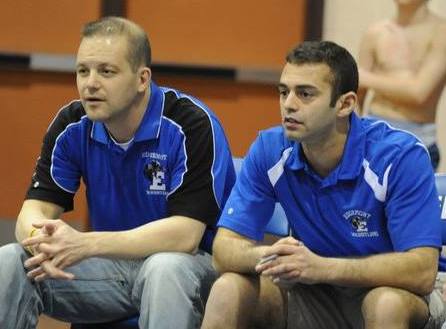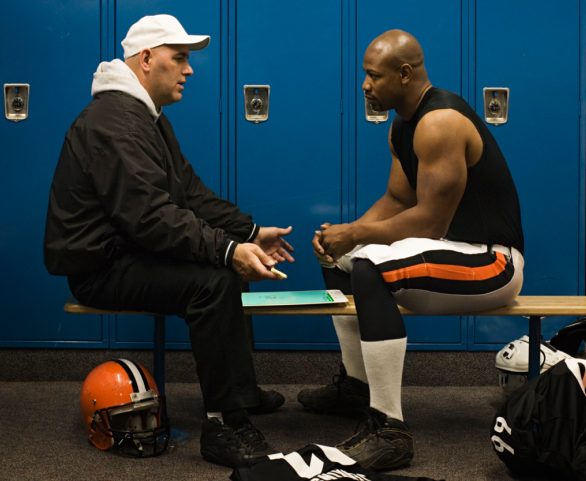As parents and coaches of young athletes, we spend a great deal of our time and energy focusing on our children’s performance. We look at their efforts, their results, and their commitment. We help them set goals, and do our part to help them achieve those goals by taking them to and from training and games, finding good coaches, and buying them equipment. Yet all too often, our children ‘under-perform’ according to our expectations, and we are at a loss as to why. There is a simple answer. We do not pay enough attention to their mental state and its effect upon their performance.
In his two decades of work on what he calls “The Anatomy of Results,” Eric Plantenberg of Freedom Personal Development has studied the interplay of intentions, state, and actions on performance. Plantenberg defines intentions as a person’s vision, goals, and motivation to perform. Actions he describes as “what you do when you show up to perform.” He defines a person’s state as “how you show up,” the energetic and emotional quality you bring to your activity. What he has found is quite compelling.
Most people believe that their actions and intentions have the greatest impact on their results. Plantenberg has found in his work with elite athletes, business executives, and other top performers that state is the greatest determinant of high achievement. In the most successful people, their intentions account for 30% of their accomplishment, and their actions account for 10%. Their state, however, is responsible for a whopping 60% of their success!
When we think about it, this makes a lot of sense. If we use the example of a basketball game, every player on the court likely intends to win the game, wants to play well, and wants to succeed. They all can dribble, pass, shoot, run, and perform the required actions in the game, albeit some better then others. The elite performers are the ones who show up ‘in the zone,’ ready to play, and believing in their inevitable success. A well prepared player whom fails to show up in a positive state rarely performs well, while a less talented player that maintains an abundance of energy and a positive outlook will likely perform his best. Less talented athletes with great attitudes often outperform talented kids with a poor state of mind.
Youth sports parents often pay little attention to the components that have the greatest effect upon their child’s performance , his state of mind. We tend to spend our time focusing on our kid’s intentions and actions. We hire coaches, buy expensive equipment, and sign them up for the most successful teams, but we forget to communicate openly, share their goals, and love them unconditionally. We set our own goals and expectations of high achievement, and strive for scholarships and championships. Then we neglect to ask our kids if they are having fun, we ignore the signs of low self confidence, and we fail to notice the absence of a positive inner voice in our kids. When they fail to achieve, our first reaction is often anger or disappointment – “how could this be, I gave you everything you needed and you still didn’t win.” Yet we didn’t give them the most important element of success: a positive state of being.
Instead of worrying about how many minutes your child played in the last game, spend some time asking him what are his favorite things about playing sports. Instead of being angry that your daughter did not do the extra run her coach asked her to, find out why she was not motivated to run in the first place. Instead of complaining about the behavior of the other team’s parents on the sideline, ask your son how he would like you to act, cheer and support him. And instead of being disappointed by your child’s underwhelming performance, take the time to find out how he showed up in the first place, and why he showed up that way. The insight you gain will help you and your child return to the path of achievement.
If your child wants to be a high achiever, he needs to live the lifestyle of a high achiever. He needs to have the right goals and intentions, the requisite amount of determination, commitment and deliberate practice. These things are a given, and every athlete who is pursuing high achievement is capable of performing them. The real difference between average performance and high achievement lies in the state of mind of your child. He requires open communication with you, a positive inner voice, confidence, and the knowledge that your love of him is not tied to the outcome of his game. He needs to embrace opportunities and risk, instead of fearing failure. He needs a parent to model the correct behavior and values, and help him do the same. He needs a positive state.
Next time your child takes the field, forget about their physical and technical abilities for a while, and turn your attention toward their state of mind. The chances are great that there will be a direct correlation between their state and their performance. Be aware of the ‘state’ of high achievement, and help your child show up to perform. You will be glad you did.












Comments